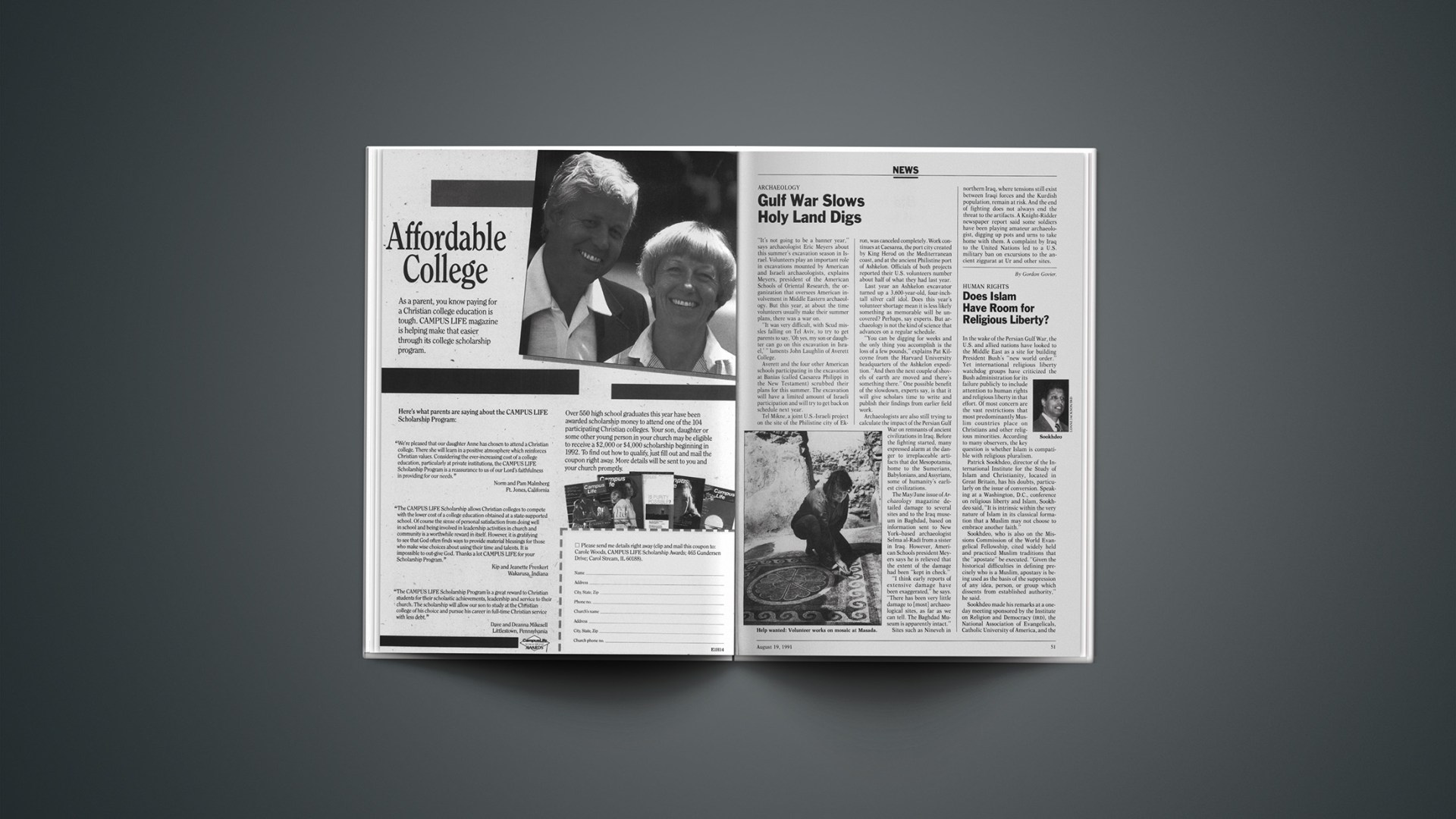“It’s not going to be a banner year,” says archaeologist Eric Meyers about this summer’s excavation season in Israel. Volunteers play an important role in excavations mounted by American and Israeli archaeologists, explains Meyers, president of the American Schools of Oriental Research, the organization that oversees American involvement in Middle Eastern archaeology. But this year, at about the time volunteers usually make their summer plans, there was a war on.
“It was very difficult, with Scud missles falling on Tel Aviv, to try to get parents to say, ‘Oh yes, my son or daughter can go on this excavation in Israel,’ ” laments John Laughlin of Averett College.
Averett and the four other American schools participating in the excavation at Banias (called Caesarea Philippi in the New Testament) scrubbed their plans for this summer. The excavation will have a limited amount of Israeli participation and will try to get back on schedule next year.
Tel Mikne, a joint U.S.-Israeli project on the site of the Philistine city of Ekron, was canceled completely. Work continues at Caesarea, the port city created by King Herod on the Mediterranean coast, and at the ancient Philistine port of Ashkelon. Officials of both projects reported their U.S. volunteers number about half of what they had last year.
Last year an Ashkelon excavator turned up a 3,600-year-old, four-inch-tall silver calf idol. Does this year’s volunteer shortage mean it is less likely something as memorable will be uncovered? Perhaps, say experts. But archaeology is not the kind of science that advances on a regular schedule.
“You can be digging for weeks and the only thing you accomplish is the loss of a few pounds,” explains Pat Kilcoyne from the Harvard University headquarters of the Ashkelon expedition. “And then the next couple of shovels of earth are moved and there’s something there.” One possible benefit of the slowdown, experts say, is that it will give scholars time to write and publish their findings from earlier field work.
Archaeologists are also still trying to calculate the impact of the Persian Gulf War on remnants of ancient civilizations in Iraq. Before the fighting started, many expressed alarm at the danger to irreplaceable artifacts that dot Mesopotamia, home to the Sumerians, Babylonians, and Assyrians, some of humanity’s earliest civilizations.
The May/June issue of Archaeology magazine detailed damage to several sites and to the Iraq museum in Baghdad, based on information sent to New York-based archaeologist Selma al-Radi from a sister in Iraq. However, American Schools president Meyers says he is relieved that the extent of the damage had been “kept in check.”
“I think early reports of extensive damage have been exaggerated,” he says. “There has been very little damage to [most] archaeological sites, as far as we can tell. The Baghdad Museum is apparently intact.”
Sites such as Nineveh in northern Iraq, where tensions still exist between Iraqi forces and the Kurdish population, remain at risk. And the end of fighting does not always end the threat to the artifacts. A Knight-Ridder newspaper report said some soldiers have been playing amateur archaeologist, digging up pots and urns to take home with them. A complaint by Iraq to the United Nations led to a U.S. military ban on excursions to the ancient ziggurat at Ur and other sites.
By Gordon Govier.










